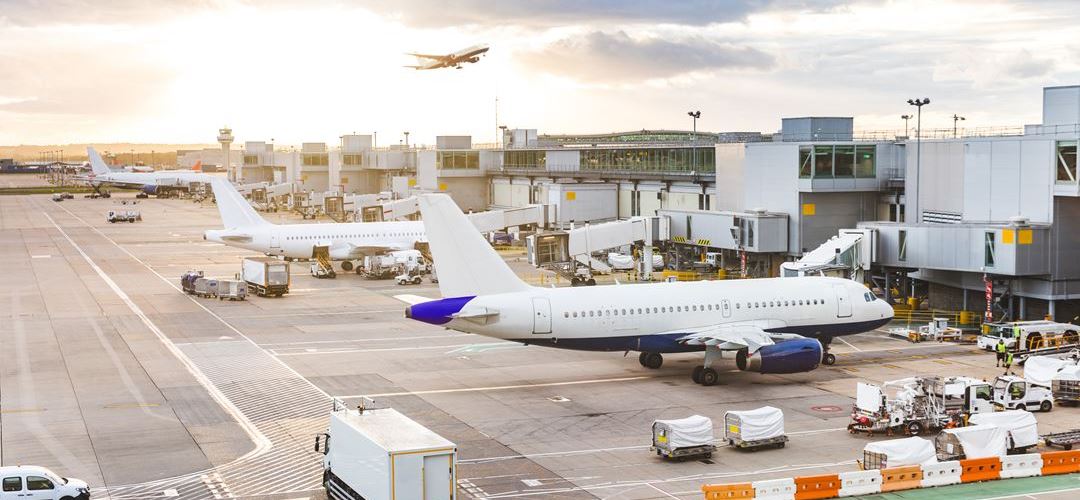243,000 people are injured each year in accidents and incidents at the apron area at airports – which is where the airplanes park and the busiest area of an airport.
Running an airport is a complex business and there are a huge range of workers involved. Skilled ground handlers, catering, firefighters, technical staff, security, air traffic control, and others have a vital role in keeping an airport running smoothly.
The apron area is the busiest area on an airport with strict time-performance goals for the personnel operating there. The apron is where the aircraft parks and the passengers and fright embark and disembark the aircraft. Here it is a risk of damaging the aircraft, the ground equipment or injuring staff or passengers. In fact, 243 000 people are injured each year in apron-related accidents and incidents. Moreover, ground damage to aircraft, e.g., in connection with baggage handling, catering trucks, is the number one safety issue at airports currently according to the European Union Aviation Safety Agency (EASA). And unreported safety-related occurrences, like incidents and accidents, pose the highest risk to flight safety.
To reduce the number of incidents, Airside Innovation with partners are focusing on the apron area – a «hot spot» of the airport, where we will introduce human-AI teaming into the daily safety and quality work. Such teaming involves augmenting human capabilities and raising performance beyond that of either entity and SINTEF leads the development of the Human-AI teaming aspects in the project.
More specifically, we will develop, demonstrate and verify a Decision Support System prototype – for automatic classification and reporting of occurrences in the apron area of airports through human-AI collaboration addressing stakeholders’ requirements and acceptability.
Although AI-based (Artificial Intelligence) "assistants" are widely used for applications such as accounting, customer support, etc., airport apron safety reporting still consists mostly of manual procedures.
A key to succeed is the combination of partners and advisory board in the project which represents the value chain for developing and deploying the innovation from the project. The project partners are:
- Airside Innovation – Ending up with the very best machine learning (AI) algorithms and selling these solutions to airports worldwide.
- Opscom Systems as – Delivering safety and quality systems to more than 60 airports worldwide.
- Widerøe Ground Handling (WGH) – is the largest ground handling company in Norway, with a staff of highly qualified and motivated people of 1800 handling 85.000 flights a year.
- Avinor – is a world class airport operator with 43 airports in Norway. They have a staff of 3000 and handles more than 50 mill. pax a year.
- NORCE – is a new and forward-looking research institute that deliver research and innovation in energy, health care, climate, the environment, society and technology.
- SINTEF AS – is one of Europe’s largest independent research organizations. Every year we carry out several thousand projects for customers large and small. SINTEF is the project manager of the FLAIT project.
The world-class advisory board of the project are
- The Civil Aviation Authority of Norway – Giving regulatory advice and participating with their highly qualified staff in Bodø
- London Luton Airport – Renown for innovations in ground handling and airside operations. One of the fastest growing airports in Europe
- Vaclav Havel Airport Praha – A major hub in Europe. With a staff always looking for improvements in their safety work.
The project is co-funded by the Research Council of Norway and with in-kind contributions from the industry partners. An Innovation Project for the Industrial Sector is a funding instrument that provides grants to business-led innovation projects that make extensive use of research and development (R&D) activities. The Innovation Project is to lead to renewal and sustainable value creation for the project’s business partners. Funding should also generate socioeconomic benefits by making new knowledge and solutions available. The funding from the Research Council is a stepping stone to realizing this project. Moreover, in 2020, Airside Innovation got a development grant from Bodø Kommune. This was a very important contribution in relation the two years of work prior to the research grant from the Research Council.
Want more information? Please contact us!
Project Owner: , Airside Innovation AS
phone: +47 91178517
Project Manager: , SINTEF
phone: +47 412 26 902
Photo: Shutterstock

